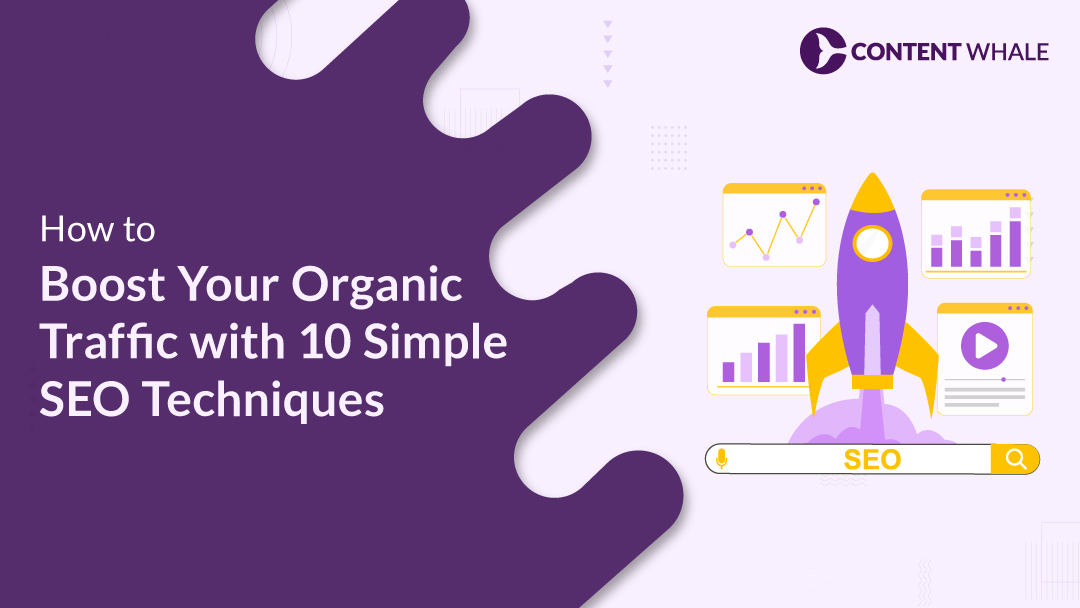Quick Summary
Learn essential SEO strategies for non-profit organizations. Understand the importance of non-profit SEO for increasing online visibility and engagement. Discover practical SEO tips for optimizing your non-profit’s website to attract more donors and volunteers.
SEO is essential for non-profit organizations in today’s digital age. Effective non-profit SEO can significantly boost your online visibility, making it easier for potential donors and volunteers to find you. With the right SEO strategies, non-profits can enhance donor engagement, drive volunteer recruitment, and improve their overall search engine ranking.
In this blog, we’ll explore practical SEO tips tailored specifically for non-profits. From keyword research to content marketing, these strategies will help you optimize your website and reach a broader audience. Let’s dive into these actionable steps to improve your non-profit optimization efforts and achieve your mission more effectively.
Optimize Your Google My Business Listing
Your Google My Business (GMB) listing is a powerful tool for improving local SEO and increasing your non-profit’s visibility in local search results. An optimized GMB profile can help attract local donors and volunteers who are crucial to your mission.
Claim and Verify Your Listing
First, make sure to claim and verify your GMB listing. This ensures that your organization appears in Google search and maps. Simply visit the Google My Business website, follow the instructions to claim your listing, and complete the verification process.
Optimize Your Listing
Once your listing is verified, optimize it with accurate and up-to-date information. Include essential details such as your non-profit’s name, address, phone number, and website. Add high-quality photos of your organization and events to make your profile more engaging.
Regular Updates and Engagement
Keep your GMB profile active by posting updates about upcoming events, news, and announcements. Encourage supporters to leave reviews and respond to them to show your engagement with the community. Regular updates and interactions can significantly boost your non-profit SEO and help you maintain a strong local presence.
By optimizing your GMB listing, you can enhance your search engine ranking and improve online visibility, making it easier for local supporters to find and engage with your organization.
Conduct Keyword Research Relevant to Non-Profits

Effective keyword research is the foundation of successful non-profit SEO. By targeting the right keywords, you can reach a broader audience interested in your cause, leading to increased donor engagement and volunteer recruitment.
Identify Relevant Keywords
Start by identifying keywords that are relevant to your non-profit’s mission and activities. Use tools like Google Keyword Planner, Ubersuggest, and SEMrush to find keywords that your target audience is searching for. Focus on long-tail keywords that are specific to your cause, such as “fundraising ideas for animal shelters” or “volunteer opportunities in education.”
Use Keyword Research Tools
Utilize keyword research tools to discover search volume, competition, and related keywords. This information helps you prioritize which keywords to target. For example, if you find that “charity SEO” has a high search volume but low competition, it’s a valuable keyword to focus on.
Incorporate Keywords Naturally
Once you have your list of keywords, incorporate them naturally into your website content, meta tags, and headers. This improves your on-page SEO and helps search engines understand the relevance of your content to users’ search queries. Remember to use a mix of primary and secondary keywords to create a balanced and effective non-profit optimization strategy.
By conducting thorough keyword research, you can enhance your non-profit’s online visibility and improve your search engine ranking, making it easier for people to find and support your cause.
Create High-Quality, Mission-Focused Content
Creating high-quality, mission-focused content is essential for non-profit SEO. Content that resonates with your audience and reflects your organization’s mission can drive donor engagement, increase online visibility, and improve your search engine ranking.
Understand Your Audience
Before creating content, understand your audience’s interests and needs. This helps you develop topics that are relevant and engaging. For instance, if your non-profit focuses on environmental conservation, create content around topics like “tips for reducing plastic waste” or “how to support local conservation efforts.”
Develop a Content Plan
A well-structured content plan ensures consistent and strategic content creation. Include a mix of blog posts, success stories, and informational articles. Blog posts can cover various aspects of your cause, while success stories can highlight the impact of your work, fostering a deeper connection with your audience.
Optimize Content for SEO
Incorporate relevant keywords naturally into your content. Use your primary keyword, non-profit SEO, along with secondary keywords like charity SEO, SEO tips, and non-profit optimization. This helps search engines understand the relevance of your content to users’ queries. Don’t forget to use on-page SEO techniques, such as optimizing title tags, meta descriptions, and headers.
Regular Updates and Engagement
Keep your content fresh and up-to-date. Regularly update your website with new articles and success stories to keep your audience engaged. This also signals to search engines that your site is active, which can positively impact your search engine ranking.
Creating mission-focused content that is relevant and engaging will not only boost your non-profit marketing efforts but also enhance your overall SEO strategies. This approach can help attract more donors and volunteers, ultimately supporting your mission.
Optimize On-Page SEO Elements

Optimizing your on-page SEO elements is a fundamental step in improving your non-profit SEO. Effective on-page optimization helps search engines understand your content better, leading to improved search engine ranking and increased online visibility.
Focus on Title Tags and Meta Descriptions
Title tags and meta descriptions are critical components of on-page SEO. Make sure each page on your website has a unique and descriptive title tag that includes your primary keyword, such as non-profit SEO. Meta descriptions should be compelling and provide a brief overview of the page’s content, incorporating secondary keywords like SEO tips and charity SEO.
Use Headers Strategically
Headers (H1, H2, H3) help organize your content and make it easier for both users and search engines to understand. Use your primary and secondary keywords naturally in your headers. For example, an H2 header could be “Effective SEO Strategies for Non-Profits” and an H3 could be “Non-Profit Optimization Techniques.”
Optimize Images and Multimedia
Images and multimedia elements can enhance your content but also need to be optimized for SEO. Use descriptive file names and alt text that include relevant keywords. This not only helps with accessibility but also provides additional context to search engines, contributing to your on-page SEO efforts.
Ensure Mobile-Friendliness and Fast Load Speeds
A mobile-friendly website is essential for modern SEO. Ensure your site is responsive and provides a good user experience on all devices. Additionally, page load speed is a significant factor in search engine ranking. Optimize images, use a content delivery network (CDN), and minimize code to improve load times.
Implement Internal Linking
Internal linking helps distribute page authority throughout your site and improves navigation. Link relevant pages and use anchor text that includes keywords related to non-profit marketing and donor engagement. This not only aids SEO but also keeps visitors engaged with your content for longer periods.
By optimizing these on-page SEO elements, you can enhance your non-profit’s online presence and achieve better visibility in search engine results. This will help you attract more donors, volunteers, and supporters to your cause.
Leverage Social Media for SEO
Social media is a powerful tool that can significantly boost your non-profit SEO efforts. By strategically using social media platforms, you can increase your organization’s online visibility, drive more traffic to your website, and improve your search engine ranking.
Share High-Quality Content
Consistently sharing high-quality, mission-focused content on social media can attract more followers and engagement. Use platforms like Facebook, Twitter, and Instagram to post updates, success stories, and educational content. Make sure to include relevant keywords such as non-profit marketing and donor engagement in your posts to enhance their visibility.
Encourage Social Sharing
Encouraging your followers to share your content can amplify your reach and improve your SEO. Create compelling and shareable content, such as infographics, videos, and blog posts, that resonates with your audience. When your content is shared, it generates backlinks, which are an important factor in off-page SEO.
Engage with Your Audience
Engagement is key to building a strong social media presence. Respond to comments, answer questions, and participate in conversations related to your cause. This not only helps build a community around your non-profit but also signals to search engines that your organization is active and relevant, positively impacting your search engine ranking.
Use Hashtags and Keywords
Incorporate relevant hashtags and keywords into your social media posts to increase their discoverability. For instance, using hashtags like #CharitySEO, #FundraisingSEO, and #VolunteerRecruitment can help you reach a broader audience interested in these topics. Make sure your social media profiles are optimized with keywords related to your non-profit optimization strategies.
Monitor and Analyze Performance
Regularly monitor and analyze your social media performance using tools like Google Analytics, Facebook Insights, and Twitter Analytics. These tools provide valuable insights into which types of content perform best and how your social media efforts contribute to your overall SEO strategy. Use this data to refine your approach and focus on what works best for your organization.
By leveraging social media effectively, you can enhance your non-profit SEO efforts, attract more donors and volunteers, and increase your organization’s visibility and impact.
Conclusion

Incorporating effective non-profit SEO strategies can significantly enhance your organization’s online presence and help you achieve your goals. By optimizing your Google My Business listing, conducting relevant keyword research, creating high-quality content, and leveraging social media, you can improve your search engine ranking and attract more donors and volunteers.
A comprehensive SEO strategy tailored to your non-profit’s needs can boost donor engagement and volunteer recruitment, ensuring that your message reaches the right audience. As you implement these SEO tips and techniques, you’ll see a positive impact on your non-profit marketing efforts and overall online visibility.
For expert assistance in creating high-quality, SEO-optimized content, consider partnering with professionals who specialize in non-profit optimization. Their expertise can help your organization stand out in the digital space, drive more support, and ultimately fulfill your mission more effectively.
FAQs
Why is SEO important for non-profits?
SEO is vital for non-profits because it enhances online visibility, making it easier for potential donors, volunteers, and supporters to find your organization. By implementing effective non-profit SEO strategies, you can improve your search engine ranking and attract more traffic to your website, ultimately increasing donor engagement and volunteer recruitment.
How can non-profits improve their local SEO?
Improving local SEO involves optimizing your Google My Business listing with accurate information, photos, and regular updates. Engage with local communities online and offline, and use local SEO keywords in your content. This helps your non-profit appear in local search results, attracting supporters from your area.
What types of content are effective for non-profit websites?
Effective content for non-profit websites includes blog posts, success stories, informational articles, and multimedia like videos and infographics. Focus on creating high-quality, mission-focused content that resonates with your audience and includes relevant keywords for better non-profit optimization.
How often should non-profits update their website content?
Regularly updating your website content is essential for maintaining engagement and improving SEO. Aim to publish new content at least once a week and update existing content periodically to keep it relevant and fresh. This practice signals to search engines that your site is active, which can positively impact your search engine ranking.
Can hiring a professional content writing service benefit non-profits?
Yes, hiring a professional content writing service can be highly beneficial for non-profits. Experts in non-profit marketing and SEO strategies can create high-quality, SEO-optimized content tailored to your organization’s needs. This can save time, improve your website’s performance, and help you achieve your goals more effectively.





